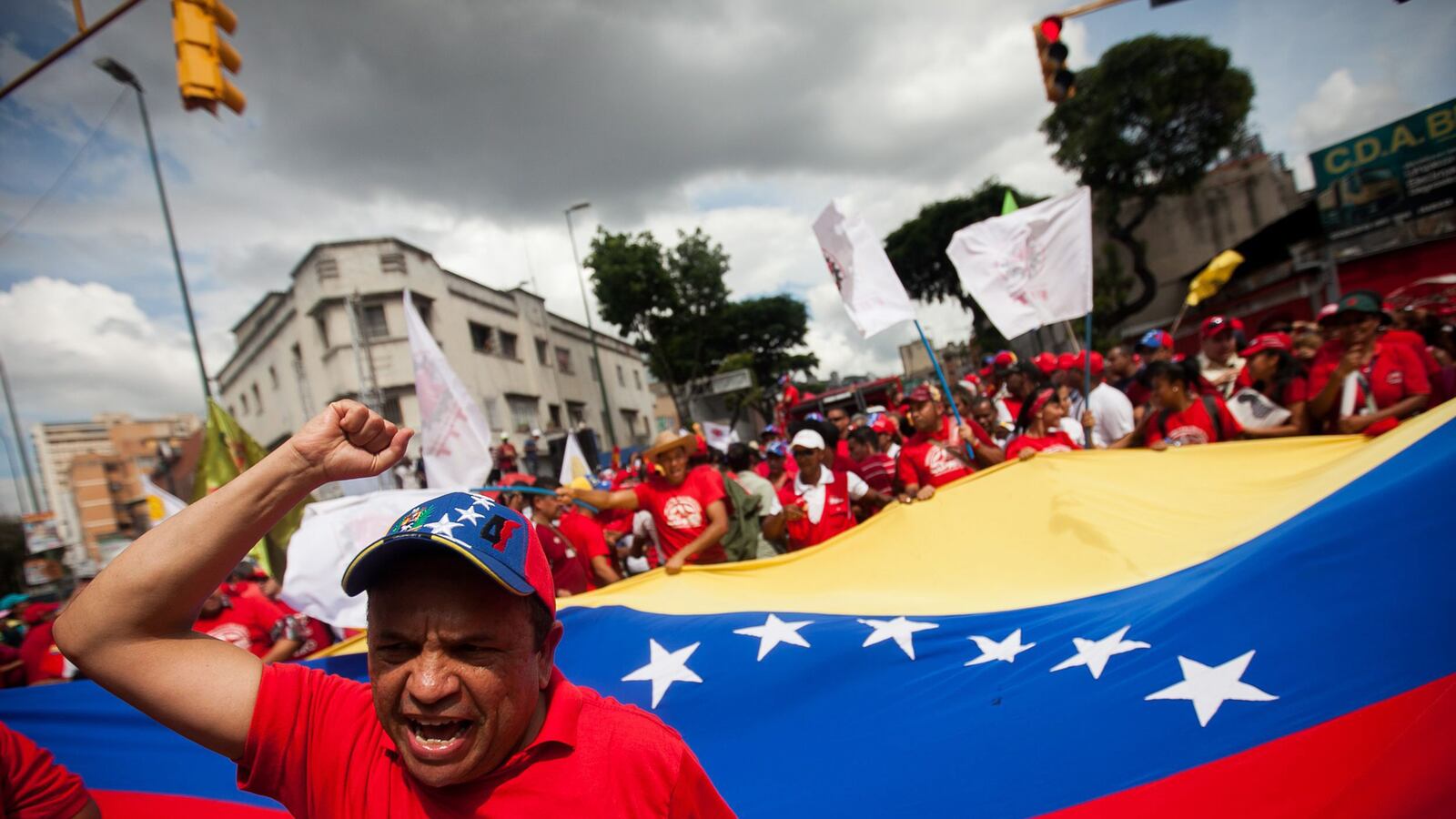Venezuela is out of toilet paper. To combat a chronic shortage, the government said this week it would import badly needed supplies of the consumer staple. In a scene reminiscent of Woody Allen’s Bananas, Commerce Minister Alejandro Fleming proclaimed this week that “the revolution will bring the country the equivalent of 50 million rolls of toilet paper."

How does a country—an entire country of 28 million people—run short of toilet paper? Absent a sudden, um, run on the product, it shouldn’t happen. Grocery stores and retailers know how to manage supply. When stashes run low, they order more. In places with a halfway functional logistics system, it shouldn’t happen. But that’s what is happening in Venezuela right now.
President Nicolas Maduro and his regime have blamed opposition forces and the media for sparking “excessive demand” for toilet paper. But it is the country’s economic policies that are really clogging up the works. Although it has become economically constipated after years of Bolivarian-socialist rule by Hugo Chávez and his successor, Maduro, Venezuela is actually a reasonably advanced economy. Thanks to the huge oil reserves, it is a densely populated nation, ranking 34th in the world in gross domestic product, with a GDP per capita of about $13,200. That’s roughly equal to Romania or Bulgaria, neither of which is experiencing a shortage of toilet paper.
But in many ways, Venezuela simply isn’t a functioning economy. The Chávez regime’s economic policies could kindly be referred to as unorthodox. Chávez routinely picked fights with trading partners. In an effort to stop the flight of capital, Venezuela enacted and enforced strict currency controls—meaning it’s difficult to use the local currency to buy foreign goods or to line up foreign lines of credit. Inflation is running at an annual clip of at least 20 percent. Worse, as part of Chávez’s efforts to improve the lot of the poor, Venezuela for years has imposed and enforced strict price controls on consumer staples—from cooking oil to paper products.
The combination of price controls and currency controls spells trouble. While they can be good for consumers in the short run, they can be bad in the long run. If the government sets the price of any good—shoes, oil, wheat, or paper products—at a price below what it costs someone to make and distribute it, there’s no incentive for local suppliers to meet the demand. Say government policy stipulates that a roll of toilet paper must cost 50 cents, but the supplies and labor used to make a roll cost 52 cents. Local producers would simply stop producing, or find ways to export their products to neighboring countries where they might bring a higher price, or sell them on the black market. The result: scarcity for domestic consumers. In theory, when domestic suppliers reduce capacity and production, imported products could pick up the slack. But currency controls make it difficult for companies in Venezuela to import goods freely.
You don’t have to be an Ayn Rand devotee to understand that when there’s little or no possibility of profit from an economic activity, the market will stop providing it.






